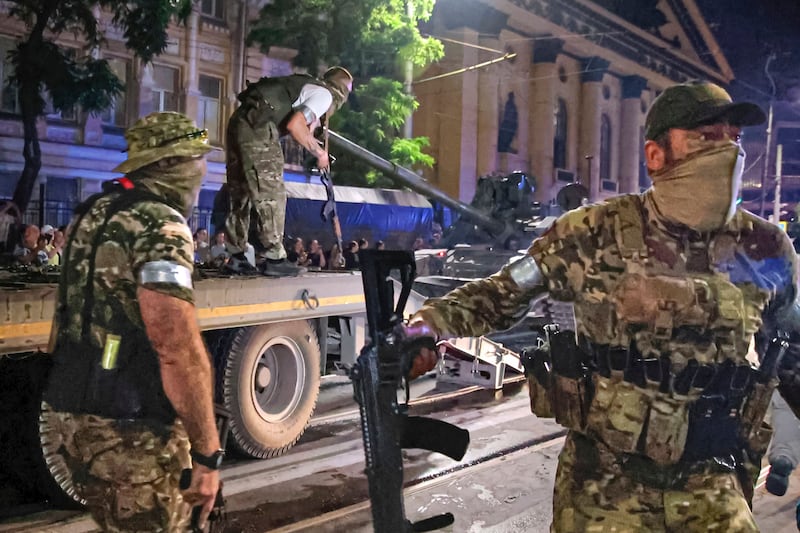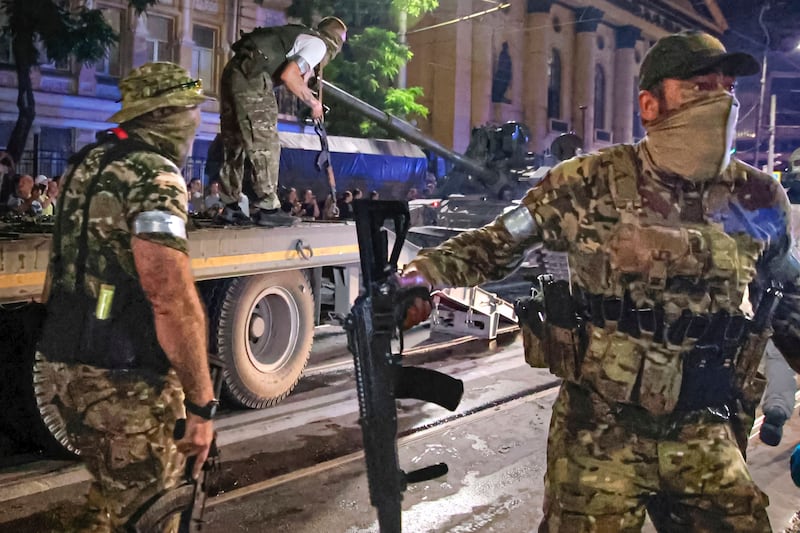THE British government helped the boss of Russia’s murderous mercenary army to circumvent its own sanctions and launch a targeted legal attack on a UK-based journalist, an investigation led by a former Irish News journalist has revealed.
Yevgeny Prigozhin is the founder of Wagner, a private army that the US government recently designated a “transnational criminal organisation", which has been accused of human rights abuses and war crimes in Ukraine and elsewhere.
Sanctions introduced in the UK and Europe in 2020 were supposed to prevent anyone from doing business with Prigozhin. He had also been sanctioned in the US in 2018.
However, an investigation led by openDemocracy's Jim Fitzpatrick, the former business editor with The Irish News, has uncovered a vast cache of hacked emails showing that, under the leadership of Rishi Sunak, the UK Treasury issued special licences in 2021 to let the oligarch override sanctions and launch an aggressive legal campaign against a journalist in the London courts.
The libel suit against Eliot Higgins personally followed revelations by his website Bellingcat about Wagner’s shadowy operations, and was part of Prigozhin’s strategy to undermine the sanctions against him.
The case collapsed in March 2022, in the aftermath of Russia’s invasion of Ukraine, but key details of how the sanctioned oligarch was able to pursue the legal attack remained secret.
The openDemocracy investigation found that the British government granted licences for a law firm to work on the case, and approved other key steps along the way, including allowing his lawyers to fly business class from London to St Petersburg so they could meet face-to-face and finalise their legal attack on the journalist.
Overriding sanctions can only be approved by a department within the Treasury, called the Office of Financial Sanctions Implementation (OFSI).
Speaking to openDemocracy, however, Mr Higgins accused the government’s OSFI department of becoming “embroiled in a scheme to undermine the very sanctions they were responsible for governing”.
He said the investigation “raised serious questions for OFSI in how they became embroiled in a scheme to undermine the very sanctions they were responsible for governing”.
The journalist said it was clear that “wealthy individuals abuse the UK legal system to attack legitimate journalists with the assistance of British lawyers” and said the case demonstrated the need for “robust anti-SLAPP legislation” to protect journalists from similar actions in the future.
His solicitor, Matthew Jury, has also made a formal complaint against Discreet Law’s behaviour in the case to the Solicitors Regulation Authority.
Labour MP Margaret Hodge, who chairs a cross-party anti-corruption group in parliament, said the revelations “beggar belief”.
“It is absolutely ludicrous that the government stands accused of evading the sanctions it itself imposed,” she said. “If this is true, why did Parliament not know about it? Where is the accountability? And the government must stop such activity now.”
openDemocracy put a number of questions to Discreet Law, but it did not respond.
The emails and documents seen by openDemocracy were uncovered through a series of hacks against more than 50 Russian companies and government agencies conducted after Russia’s invasion of Ukraine. openDemocracy does not know the identity of the hackers, but the authenticity of the information has not been challenged or disproved by those affected.






